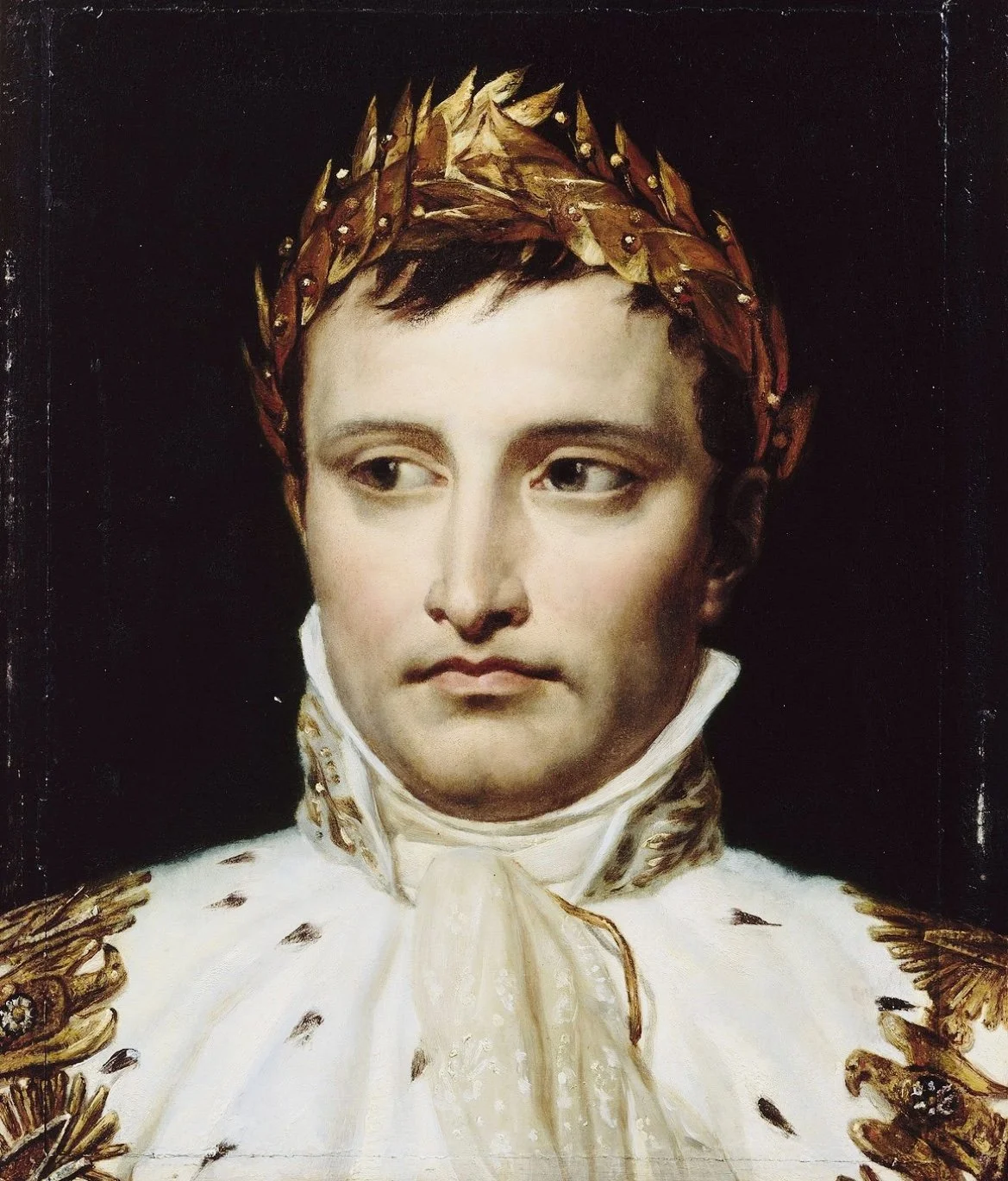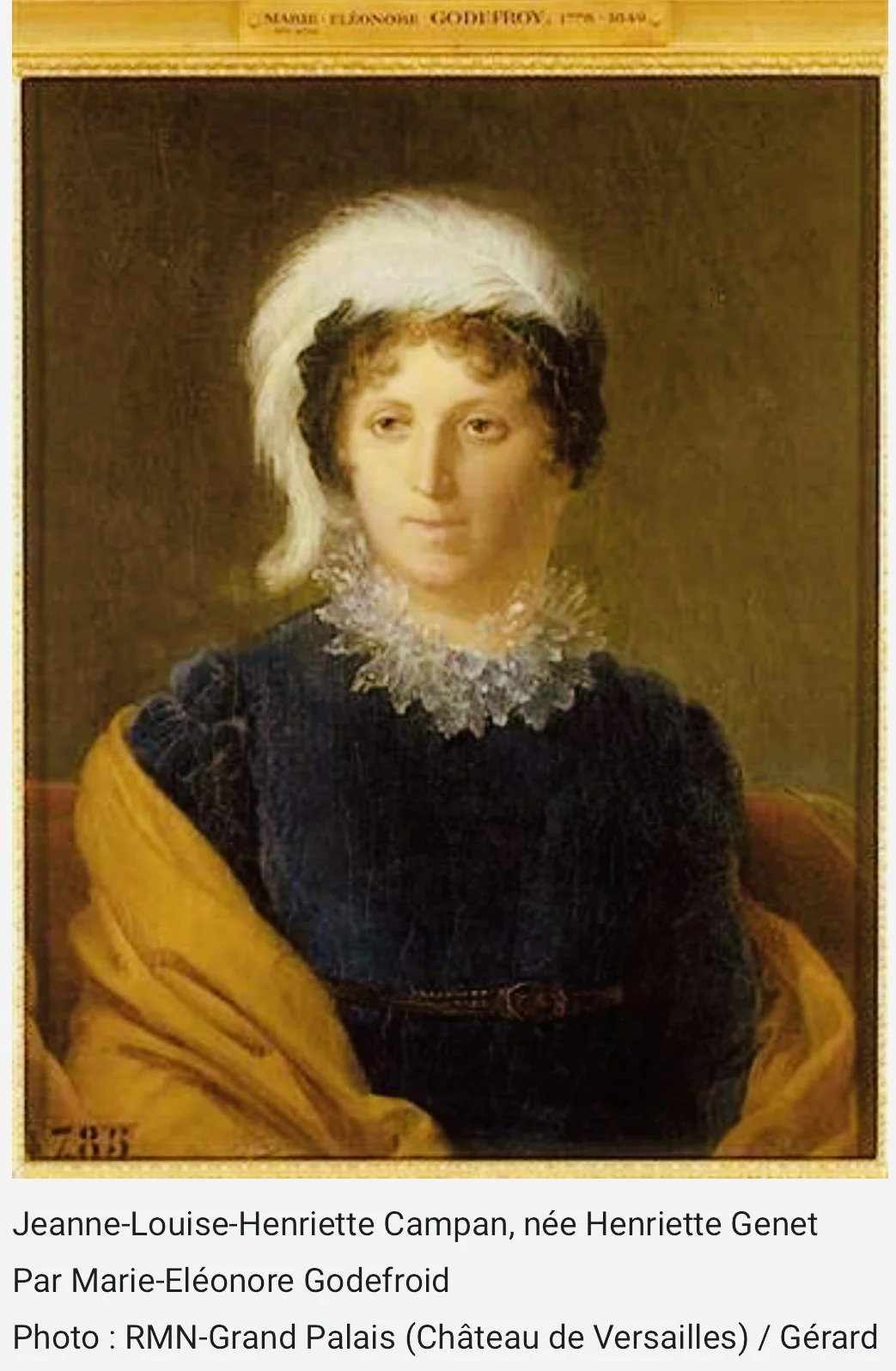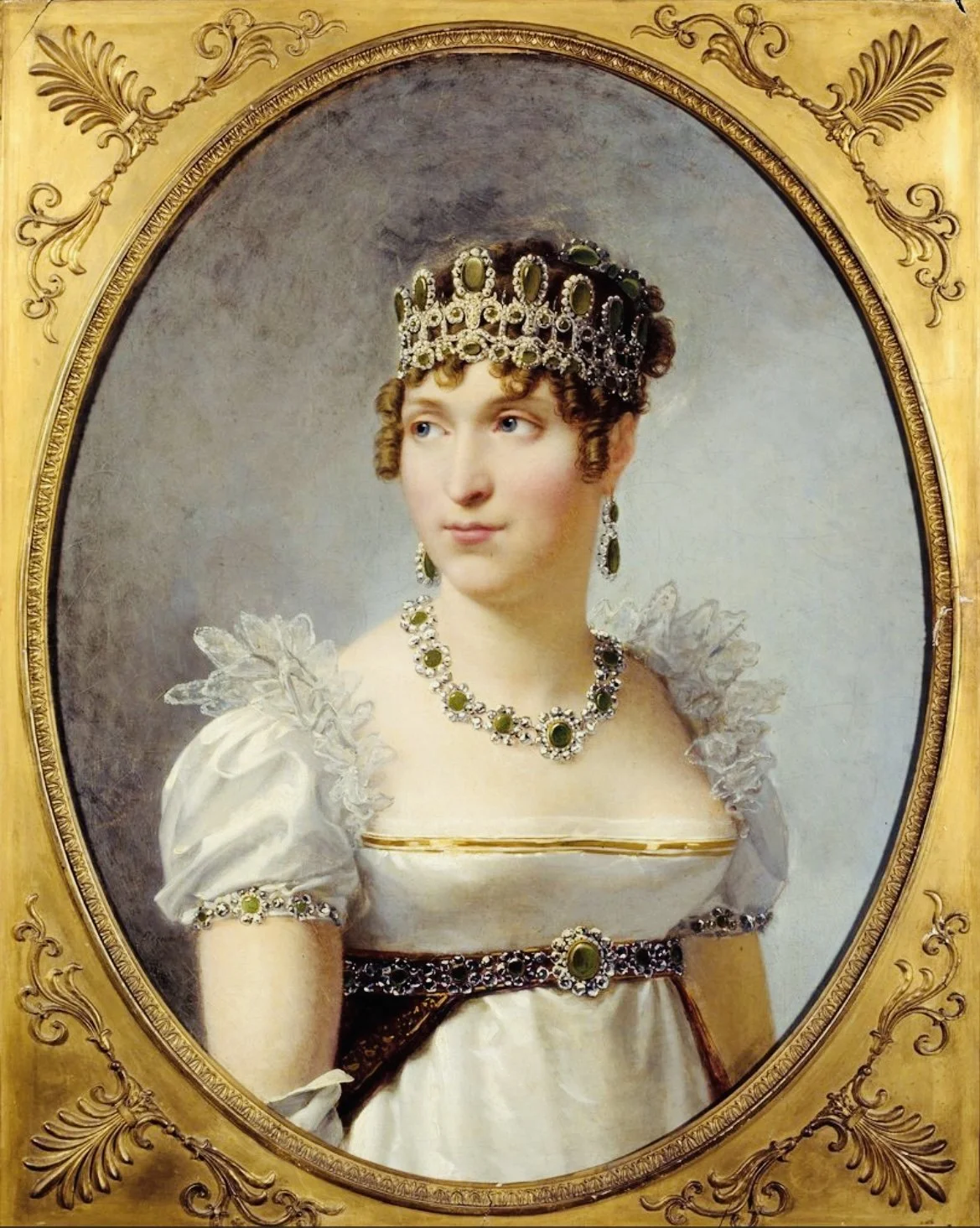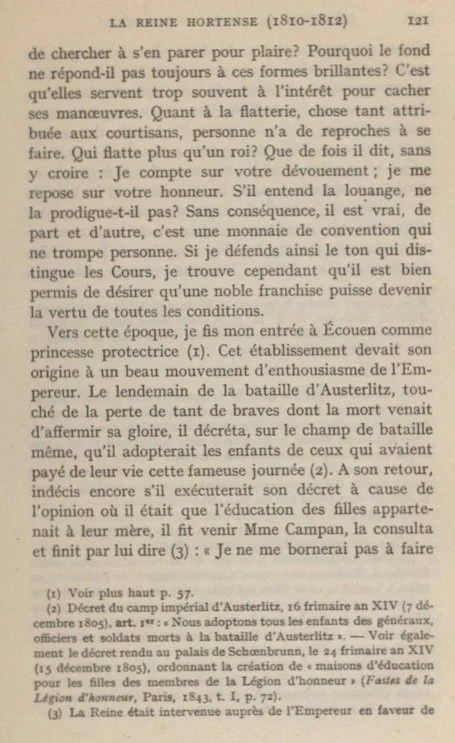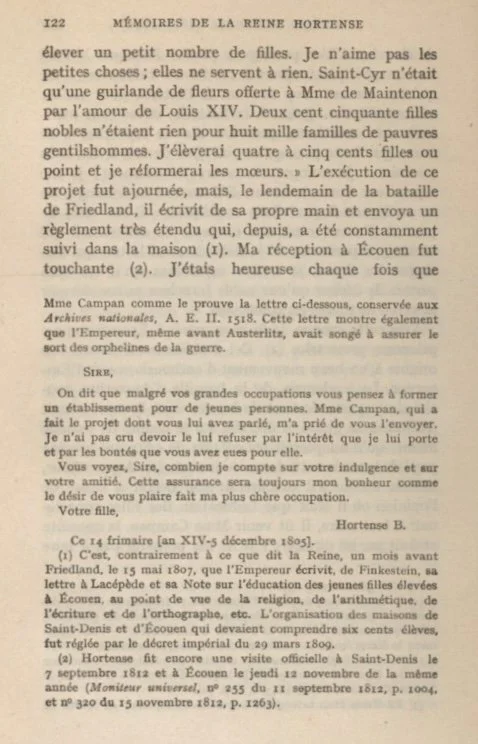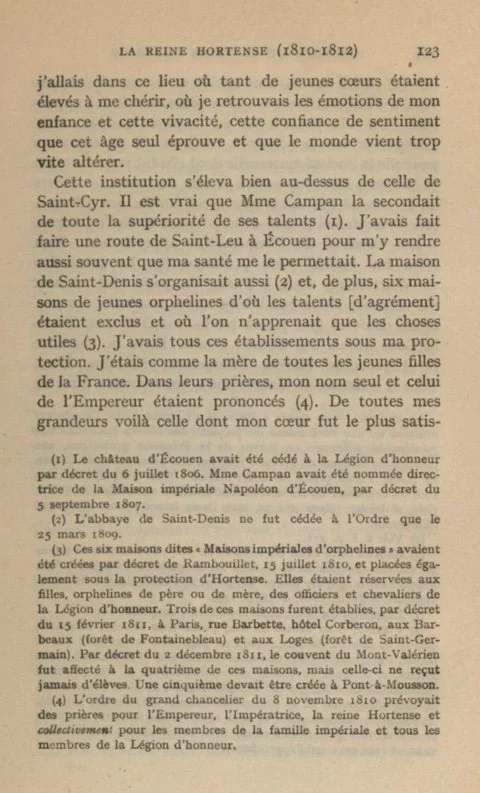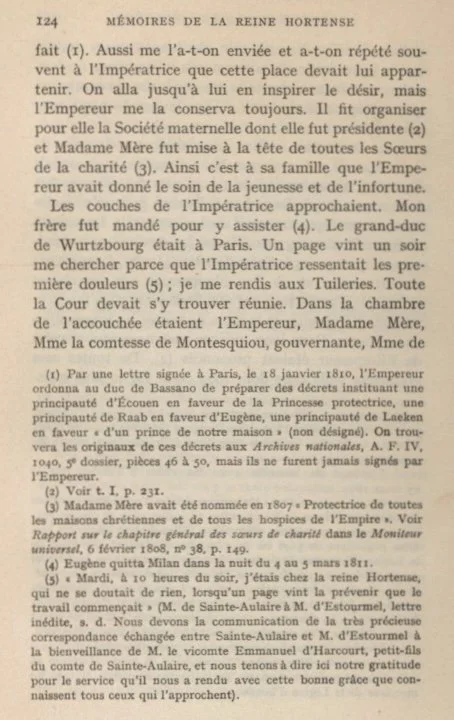Let’s have another look at Hortense’s Memoirs. If you want to read the book it is available for free at the side bar in English and French. Use the widget on the sidebar to translate the text below into pretty much any language.
Hortense and Napoleon were always very passionate about working to help people.
In the footnotes of the French edition below, a letter from Hortense to Napoleon is shown which closes with her telling him that the desire to please him is her most precious occupation.
The truth is in the patterns.
Hortense’s memoirs continues:
About this time, I made my appearance at Ecouen as princesse protectrice of the school. The institution was the result of a fine moment of enthusiasm on the part of the Emperor. The day after the Battle of Austerlitz, touched by the loss of so many brave men whose death had added to his own glory, he decreed while still on the field of battle that he was prepared to adopt the children of all those who had lost their lives on that famous occasion.
On his return, while he was still hesitating as to how to put his decree into effect on account of his opinion that girls should be brought up by their mothers, he sent for Madame Campan, consulted her and finally said:
“I shall not limit myself to provide an education for a small number of girls. I do not like little things, they are of no value. Saint-Cyr was only a flower-garland which the love of Louis XIV offered Madame de Maintenon.
“Two hundred and fifty daughters of nobles were nothing compared to eight thousand families of poor gentlefolk. I shall educate four or five hundred girls or none at all and I shall reform public morals."
The execution of this plan was postponed, but after the Battle of Friedland he wrote with his own hand and drew up a very complete set of instructions, which have ever since been strictly observed in this institution.
My reception at Ecouen was a touching one. I was happy every time I visited this place where so many young hearts were brought up to love me and where I again experienced the emotions of my childhood and that lightheartedness, that confidence in others which life too quickly effaces.
The establishment was far superior to Saint-Cyr. It is true that Madame Campan devoted all her remarkable talents to its success. I had a road made connecting Saint-Leu and Ecouen in order to go there as often as my health permitted. The school at Saint Denis was also organized, as well as six other schools for orphan girls where no mere social accomplishments were taught, but where the pupils learned things only of practical value.
I had all these institutions under my protection. It was as if I were the mother of all the girls in France. In their prayers my name and that of the Emperor were the only two specially mentioned.
Consequently, people were jealous of me. The Empress was frequently told it was she who should have this position. Indeed, she even came to wish that she did have it, but the Emperor always kept it for me.
For her he had organized a Mother's Aid Society, and Madame Mere was placed at the head of all the French Sisters of Charity. Thus, it was to his family that the Emperor confided the care of the young and the unfortunate.
The original French is available below:

